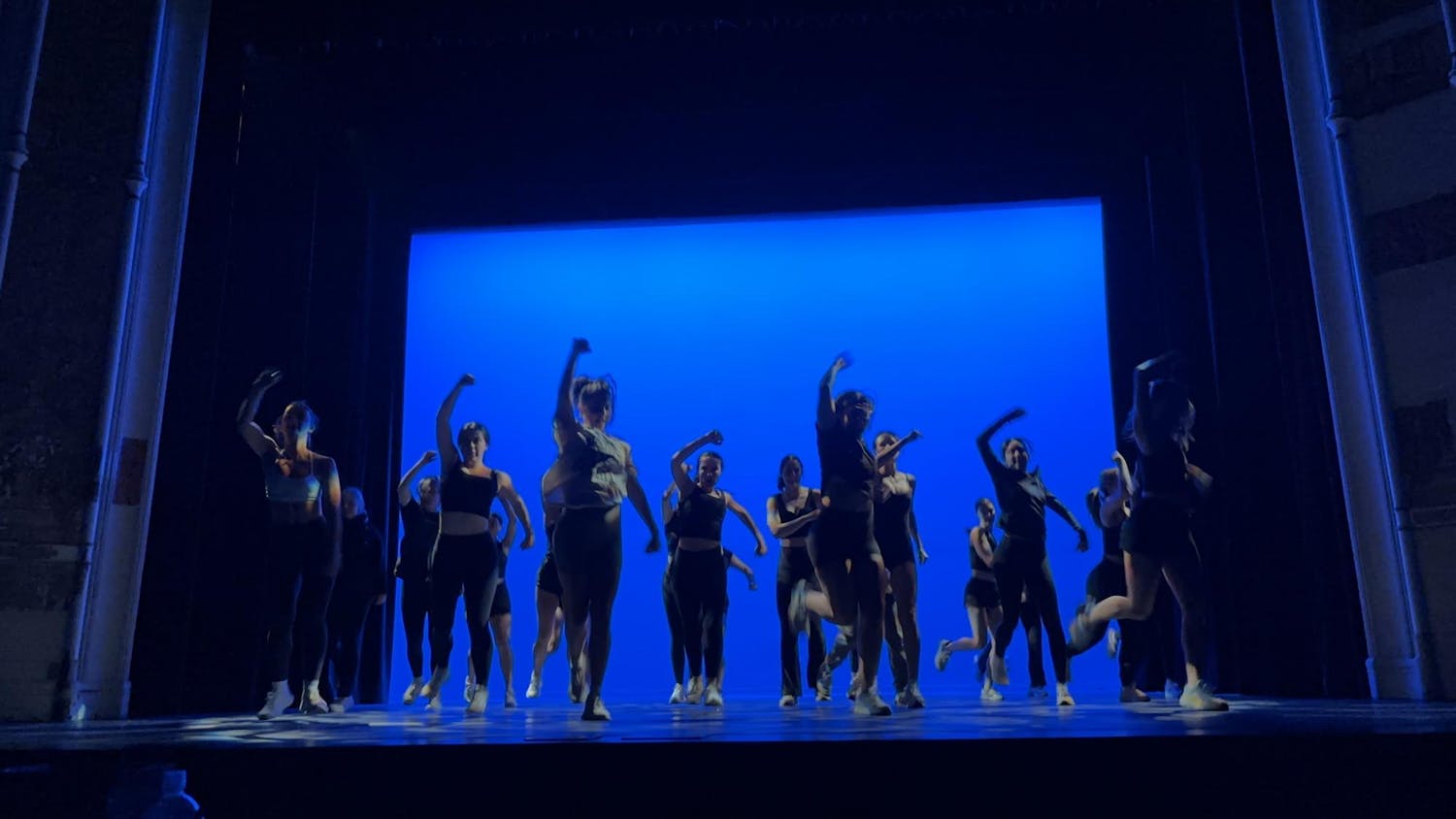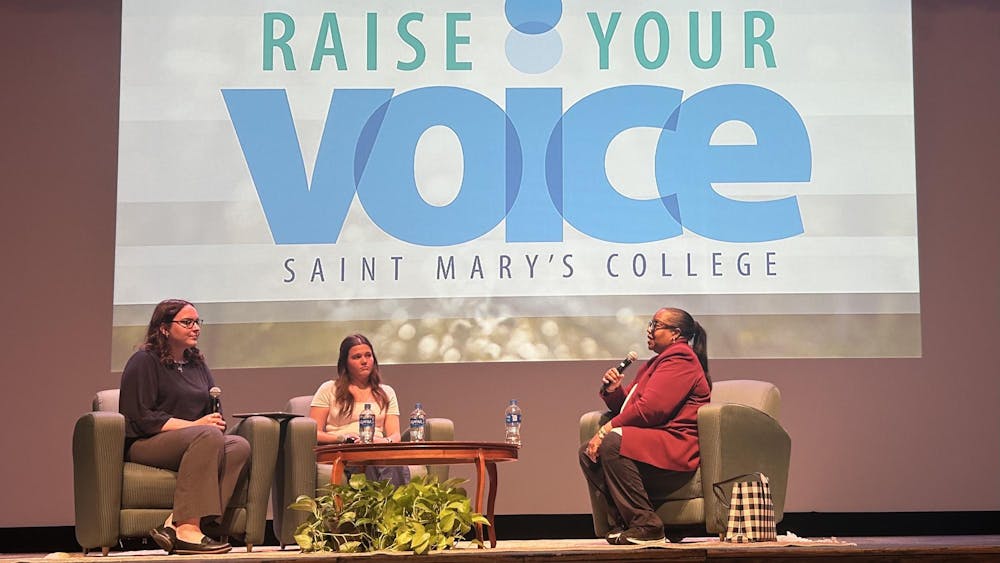Rosalie Riegle, oral historian and Saint Mary’s alumna, visited her alma mater Thursday to speak about her life’s work dedicated to nonviolent civil disobedience.
“In 2004, I found myself contemplating, for the first time, doing serious civil disobedience, to show my outrage, my sadness and my emotional involvement in resisting our government policies,” Riegle said.
Riegle read excerpts from her two books “Crossing the Line: Nonviolent Resisters Speak Out for Peace” and “Doing Time for Peace: Resistance, Family, and Community.” The Justice Education Program, the Center for Spirituality, the Cushwa-Leighton Library of Saint Mary’s College and the Catholic Peace Fellowship of South Bend co-sponsored the event.
Riegle described her choice to participate in civil disobedience, an experience that could have sent her to jail for six months.
“At an Air Force base outside of Omaha, I was with a group of Catholic workers where I was trying to decide, should I do this? Should I nonviolently cross the line?” Riegle said. “This action was a very simple, very prayerful action.”
"We knelt down, said the ‘Our Father.’ They asked us to leave; we said the ‘Our Father’ again, and they arrested us. It took about 10 minutes."“I think there were eight of us that, with a lot of supporters standing around, walked into the base and asked to see the base commander to give him a letter asking him to no longer be the command center that sends out all of the missiles,” she said. “We knelt down, said the ‘Our Father.’ They asked us to leave; we said the ‘Our Father’ again, and they arrested us. It took about 10 minutes.”
Riegle met Dorothy Day, the co-founder of the Catholic Worker Movement in 1969. She said she later decided that she wanted to become an oral historian with the purpose of learning about the Catholic Worker.
“I wrote my way into the movement,” Riegle said. “I interviewed 213 people from all over the country so I learned a lot about individual Catholic workers and how they lived the Catholic Worker life.”
Riegle said she wanted to help people understand the process of participating in nonviolent civil disobedience and the experience of being jailed or imprisoned.
“We have learned a lot from these Vietnam times, and when people are deciding to go to prison they spend some time in preparation,” Riegle said. “They talk to other people, read the books, know what it’s like and prepare themselves spiritually.”
One of the Catholic Worker philosophies is if one wants to walk with the poor and minister and listen to them, one should be a prisoner his or herself, Riegle said.
Riegle said the purpose of her books is not to treat nonviolent civil disobedience as an enterprise for success but as a practice that gives one the ability to work for something because it is good.
“It’s the certainty that something makes sense regardless of the outcome,” she said.
Contact Kate Kulwicki at kkulwi01@saintmarys.edu













